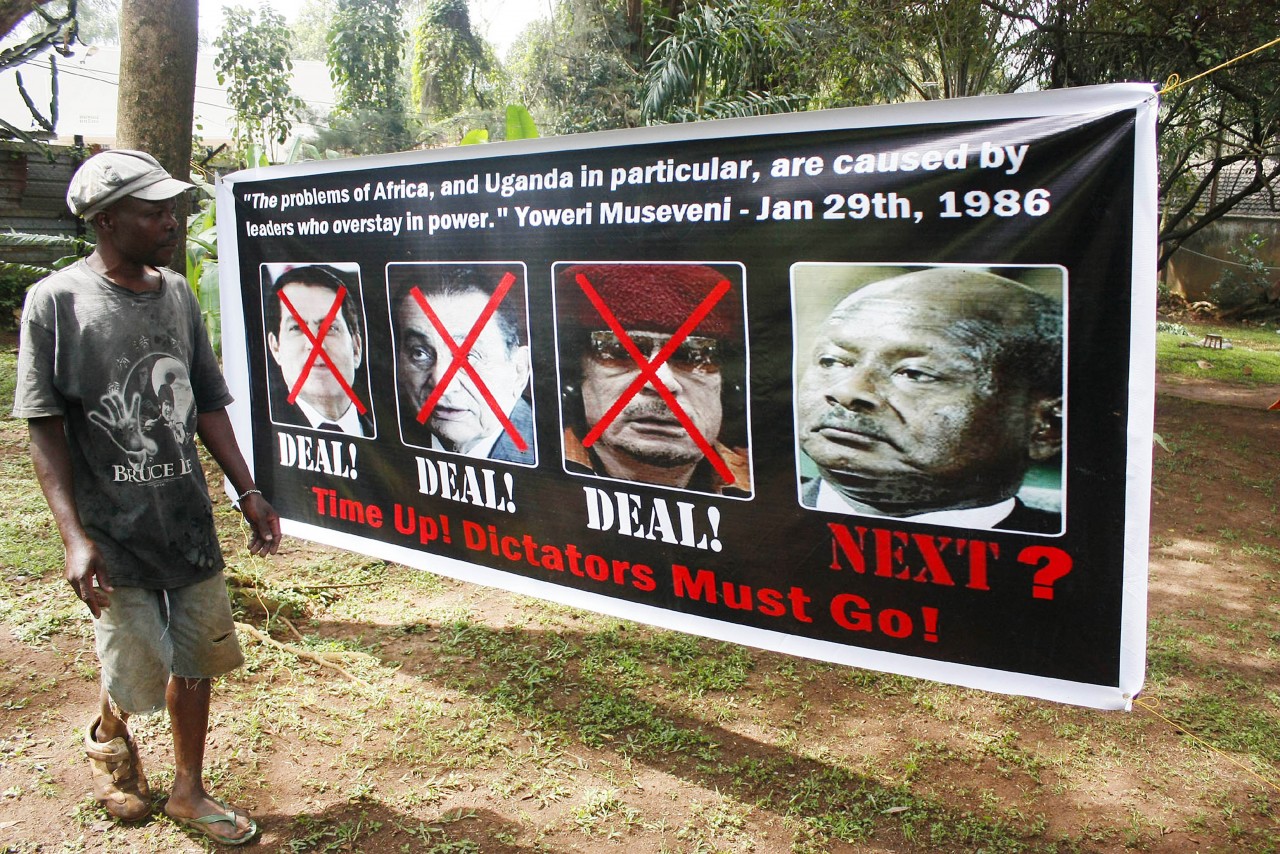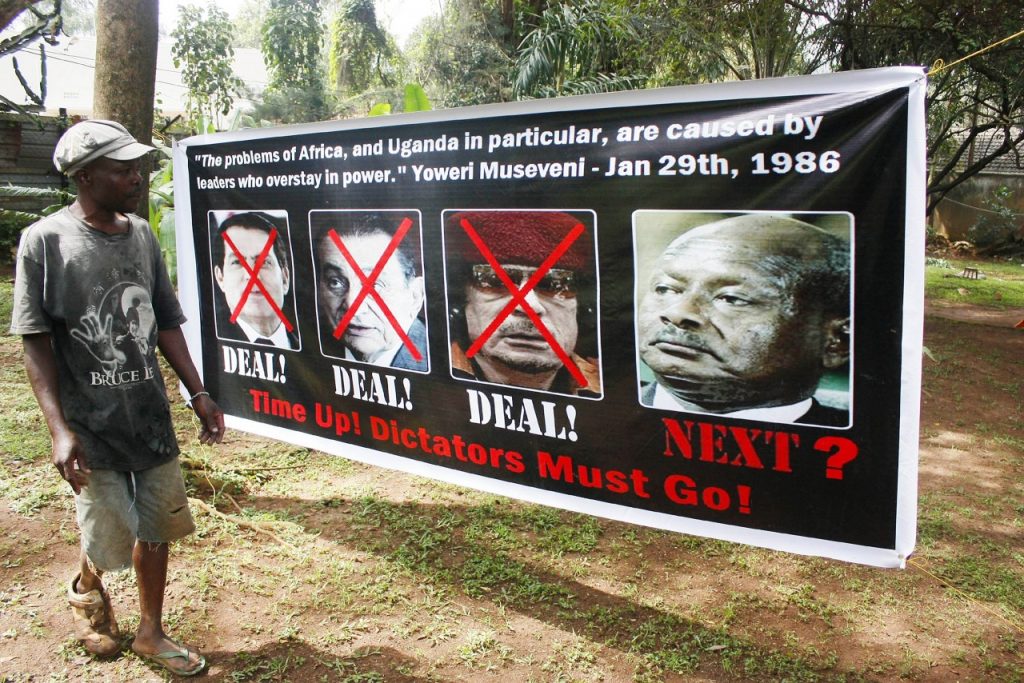Is It Time for an African Spring? Newsweek: Don’t Assume that Africans Are Powerless

The idea of an Arab Spring for sub-Saharan Africa may seem far-fetched, but it appears the idea is something that the region needs, to provide a cushion to the economic growth and development that is taking place there today.
During the now famous Arab Spring, which started in Tunisia in December 2010, revolutionaries in the Arab world used both “demonstrations and protests,” some violent and others non-violent, to remove entrenched

[/media-credit] A Newsweek portrayal of entrenched leaders in the Arab world and sub-Saharan Africa.
How exactly this is going to work in sub-Saharan Africa seems contrary to conventional thinking.
Cushion, some sort of a support system, is needed for the region, to enable it to hold on to recent gains in growth, democracy, and peace while allowing for unorthodox ways for the last bastions of dictatorship to crumble and make way for new African leadership.
The people of the sub-Saharan Africa region should not be taken for granted, is what Newsweek magazine writer Pete Guest is suggesting in WAITING FOR THE NEXT REVOLUTION: Will the Arab Spring Inspire an African Spring?
Guest writes:
“Africa has grown up in the past two decades. In most of the continent, the bad old days of dictatorships and persistent conflict are over. The overwhelmingly negative image of the continent, one fed by charity appeals and sepia-tinged coverage of war zones, has given way to one of economic growth and opportunity. In terms of absolute gross domestic product growth, sub-Saharan Africa has been booming for 10 years, with many countries posting double-digit rises on the back of high commodity prices, debt relief, improved political stability, and an excess of hot money flowing in from the West and from rising economic powers in Asia and Latin America.
The apparently insoluble crises in Central Africa and the Horn remain, and new fronts may have opened up in the Sahel, but there are far more economic success stories in Africa now than there are basket cases. Conflict-ridden countries from the 1990s are now fronted by well-educated economists and academics rather than uniformed despots.”
Guest states:
“It is easy to assume that the people of Africa – poor and disenfranchised, denied resources and opportunities – are powerless. History says otherwise.”
History says otherwise is the key phrase here.
Very interesting.
